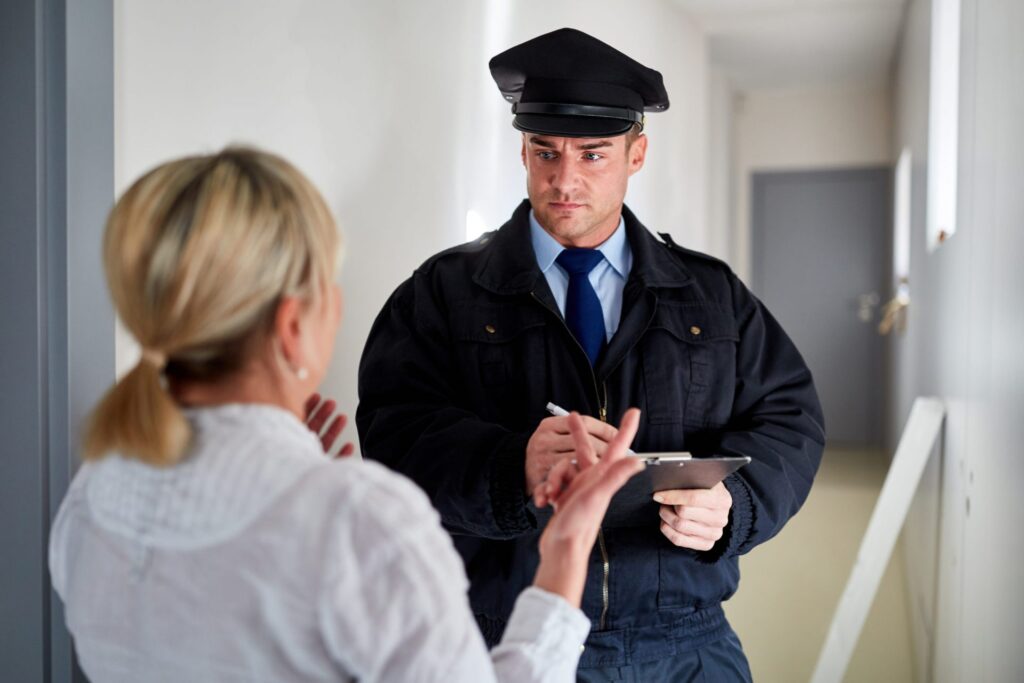If you get pulled over in the state of Maine, arrested, and charged with operating your vehicle under the influence of alcohol (OUI), then you’ll find yourself being flung headlong into the criminal justice system. As your case winds its way through the system and you get closer to a trial, evidence that you did or did not commit the crime of OUI will come to light. For example, there will be the results of a breathalyzer or a blood test to show your blood alcohol content (BAC), or your refusal to take one.
In addition to BAC evidence, though, there may also witness evidence from both police officers, lay witnesses and expert witnesses.
Police Witnesses
A police officer, of course, has direct knowledge of your case. He stopped your car, spoke with you, administered field sobriety tests and gave you a breath test. The officer must appear in court and testify against you in order for the state to prove their case.
Lay Witnesses
A lay witness is someone who has direct knowledge of your case other than the police officer(s). This includes you, a bystander who saw what happened, the bartender who served you and your friends or family members that were present during the arrest.
If your case goes to trial, any one of these people can be called to the witness stand and made to answer questions about what they know. This means that the state can call them as witnesses, if they know their identities or your attorney can call them, if he thinks the testimony they can provide will be helpful.
An important exception, though, is you. Because you’re facing a criminal charge, you cannot be forced to testify. Instead, you can assert your constitutional right not to incriminate yourself, thereby preventing the prosecutor from calling you as a witness in your own case and cross-examining you. Of course, you have the right to testify and that course of action is something that should be discussed between you and your attorney.
Expert Witnesses
Unlike a lay witness, an expert witness likely does not have direct knowledge of your case, but has an in-depth understanding of how OUI cases work.
For example, an expert witness could be someone who studies breathalyzer machines, and knows all of the intricacies about them, including how each model can be inaccurate or made to give a higher reading than is true.
Expert witnesses are particularly useful in an OUI case because there are lots of problems with gathering evidence. Each problem can raise the reasonable doubt that you need jurors to harbor, in order to obtain an acquittal. Unfortunately, expert witnesses often make a business of hiring themselves out, making them expensive assets to have on your side for an OUI case.
In addition, the state can call an expert witness such as a chemist, to testify as to the accuracy and reliability of the machine and thus, the test result in your case. In the vast majority of OUI trials, the state calls a chemist employed by the Maine Health and Environmental Testing Department to testify as to the accuracy and reliability of the breath test.
Maine OUI-Defense Attorney William T. Bly
Witnesses – both regular and expert – are huge aspects of any criminal trial process. This is no exception for OUI cases. They can make or break your chances of obtaining an acquittal at trial.
Understanding which witnesses to focus on and how to bring out testimony that will help you, all while preventing or minimizing the impact of damning testimony from the prosecutor’s witnesses, is what a skilled OUI-defense attorney like William T. Bly can do. Through countless hours of trial preparation throughout his career, Mr. Bly has developed the techniques that can help prevent your OUI charge from turning into an OUI conviction, and the significant penalties that come from one.
If you’ve been charged with OUI in the state of Maine, contact the law office of William T. Bly online or at (207) 571-8146.


